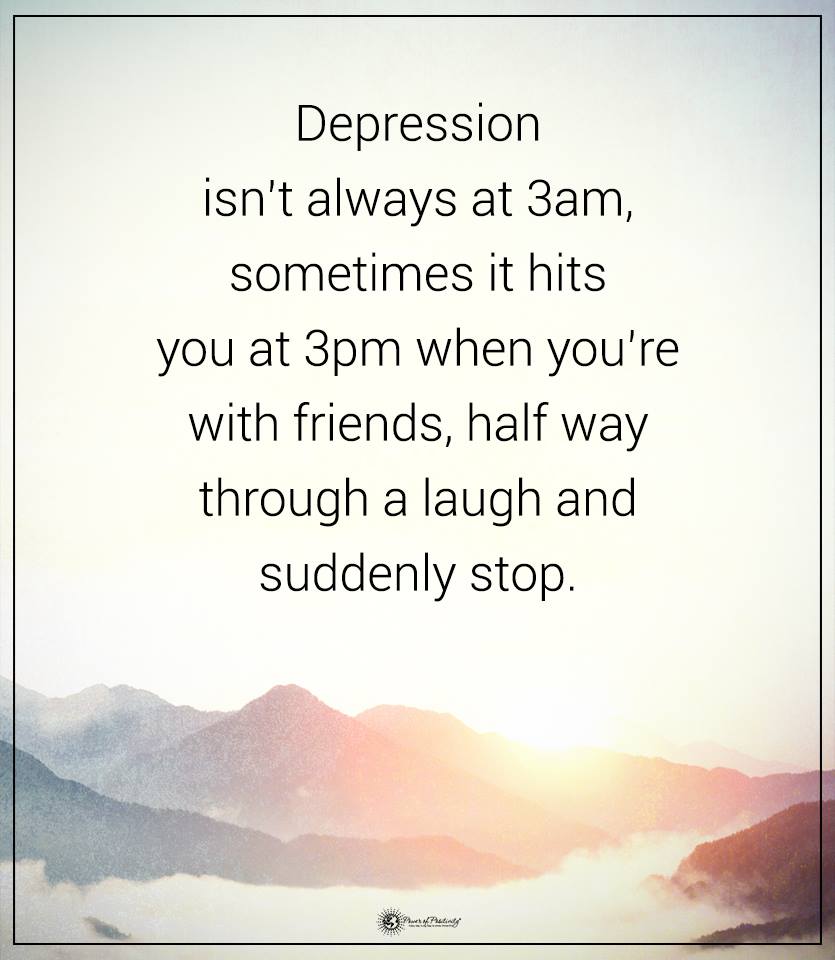If you have depression or know someone who does, you might notice that depressed people get angry. It’s hard to see the correlation between depression and anger, but it’s there if you know why it occurs. Knowing why anger happens can help you learn how to handle a depressed person who gets angry.
Anger is a normal human emotion, and everyone will experience it at some point. However, anger is different when caused by depression, often surprising everyone by its sudden and unexpected onset.
Depressed people often get angry at the world, events from the past, or even themselves. It can be an intense feeling that’s difficult to control, affecting personal and professional relationships.
Depression is a mental health disorder that causes low mood, trouble concentrating, and difficulty sleeping. Anger isn’t a diagnosable condition, but it is a negative symptom of mental health disorders. Depressed people can experience anger in a few forms, so it doesn’t always manifest in the same way.
The Types of Anger That Accompany Depression
Irritability
If you notice that someone snaps at others over trivial things, it could be irritability caused by depression. They might be unable to handle minimal disappointments, causing adverse reactions. Signs of irritability include:
- Being impatient with others
- Lashing out over minor issues
- Slamming doors or tossing objects
- Making critical or harsh remarks
- Pacing, fidgeting, or remaining in constant motion
- Having a pessimistic outlook
Hostility
When someone becomes hostile toward others, it could be that they’re depressed. It can show as becoming outwardly angry for seemingly no reason. Their hostility leads to them attacking those around them, even those who had nothing to do with the situation.
Some signs of hostility include:
- Making sarcastic or cruel comments
- Blaming others
- Responding to perceived threats with aggressive outbursts
- Being unfriendly or mean
- Doubting the intentions of others
Rapid and Intense Onset
The rapid and intense onset of anger can occur because of depression. This situation is called an anger attack, and it can be in response to trivial issues. Signs of an anger attack include:
- Intense anger that isn’t normal for that person
- Disproportionate anger for the circumstance
- Increased sweating
- Pressure or tightening of the chest
- Numbness or tingling in your limbs
- Having a hard time taking a deep breath
- Feeling dizzy or lightheadedness
- Experiencing shaking without reason
- Feelings of guilt and regret after the outburst
- Experiencing an urge to physically or verbally lash out
- Destroying objects
- Sensing a loss of control
Why Depressed People Become So Angry
Research shows that anger is related to depression because of serotonergic dysfunction. This dysfunction means that the neurochemicals in the brain and imbalanced. Without balance, it causes irritability, depression, and anger.
Sometimes this anger is turned inward, making the person have a negative inner voice. It makes it hard for the person to move past shame, and it causes low self-worth. When anger turns inward, it makes a person even more depressed, worsening all other symptoms.
Other times, the anger turns outward and projects onto others. It causes the depressed person to lash out at those around them for minor things. The person usually feels guilty after the fact but can’t control their reactions at the moment.
When a depressed person can’t deal with stress in the workplace, it could lead to issues with coworkers and managers. It also affects personal relationships as many people don’t know how to handle it.
While it’s hard to pinpoint why some people experience anger and others don’t, experts have narrowed down some ideas. Some of the causes of rage during depression include:
Gender
While men and women can experience this situation, it is more common among men. Experts believe that men try to put up a tough exterior when they feel sad, weak, or helpless—their need to handle things with toughness causes them to lash out in anger.
Age
Anger can occur for anyone with depression, but children and teenagers lash out more. They might be cranky and experience outbursts or a short tempter. However, children aren’t the only ones who experience more anger during the depression. The elderly experience more anger than younger adults.
Experiencing Other Conditions While Depressed
If a person has mental health conditions other than depression, it can trigger anger. This situation occurs when they also have one of the following disorders:
- Anxiety
- Substance use
- Personality
- Post-traumatic stress
Past Trauma, Neglect, or Abuse
People with a history of trauma, neglect, or abuse increase their chances of developing angry depression. In many cases, they couldn’t react or express their feelings, causing them to suppress them later in life. It manifests as anger, including irritability or outbursts.
How to Handle a Depressed Person Who Gets Angry
Dealing with an angry person is never a good time, but when you know they’re depressed, it can help you be more understanding. Don’t get flustered or upset because there are better ways to handle the person.
Keep Yourself Safe When You Approach Someone Who Seems Depressed
The first tip for handling this situation is to stay safe. Use your best judgment and leave the room immediately if you feel like you have to. Leaving the area isn’t always necessary, but you must do what is best for you.
Avoid Getting Angry in Return
Responding with anger won’t help the situation, and it’ll only make you feel worse. Stay calm and think before you respond, preventing an escalation. Consider taking a walk to calm your mind before dealing with what happened.
Know That You Didn’t Cause the Anger
Studies show that knowing you didn’t cause the anger won’t upset you as much. If you regularly encounter an angry person, see if you can figure out the cause. When you know the cause, you can remind yourself why they get upset and that you’re not the reason.
Prepare Yourself
If you know if you must encounter an angry person, prepare yourself for their outbursts. Remind yourself ahead of time that it has nothing to do with you.
Preparing yourself will help you keep your confidence throughout the experience. It’ll also help you stay calm when the attacks begin.
Use Distraction
Distracting an angry person can sometimes defuse the situation. Focusing their attention on something else decreases feelings of anger, helping ease the tension. Try to make them laugh because it’ll help prevent another outburst later.
How to Treat Angry Depression in Yourself
If you’re depressed and often get angry, you can treat and overcome the issue. Treating your depression is essential, but there are ways you can address the rage, too.
Depressed for an Extended Time? Go to Therapy
One way to treat angry depression is to visit a therapist. Professional help allows you to find positive ways to overcome your feelings, allowing you to control the rage.
A therapist can help you accept the anger and find ways to fix the issue. They will also help you learn to be kind to yourself rather than turning your anger inward. Therapy is a safe place where you can address the root cause of your issues and find beneficial ways to deal with them.
Learn Anger Management Techniques
Learning to manage your anger can make a difference in your life. Consider attending anger management classes or finding a support group. You can also read self-help books about managing your anger.
Manage the Triggers That Cause You to Feel Depressed
Managing your triggers requires that you stay aware of what sets you off. Think about the people, places, or situations that make you mad.
If you can, try to avoid these triggers. Since avoidance isn’t always an option, prepare yourself for the situation. Find ways to calm yourself before experiencing them, and figure out how to manage the parts that trigger you.
Switch Your Mindset
If you turn your anger inward, learn to stand up to your inner critic. When negative self-talk sets in, make a conscious effort to switch to something positive.
Replace the negativity with a positive statement about yourself. It can ease your depression symptoms, including anger.
When You Get Depressed, Practice Breathing Techniques
Anger worsens if you let it, but you can ease it with breathing techniques. Breathing techniques can help you no matter where you are, so learning a few can make a difference.
They help relax your mind and body as they increase the oxygen flow in your body. Breathing techniques also help control your fight or flight response, easing your anger as you calm down.
Turn to Your Support System
Having a support system is beneficial for everyone, but those with depression need it the most. When you have someone, you can turn to. You’ll feel supported and better able to manage your depression.
Mindfulness Meditation
Meditation is beneficial alone, but using it simultaneously with breathing techniques is also helpful. It helps you reach a state of deep relaxation, allowing you to release your emotions. It helps bring you back to the present and let go of anger and depression.
Yoga When You Feel Depressed
Yoga triggers the release of endorphins in your body, helping reduce symptoms of depression. It reduces stress while improving your mood, helping you fight feelings of anger. Yoga is beneficial because there are many positions you can try, making it fit everyone.
Final Thoughts on Understanding Why Depressed People Get Angry
Struggling with depression is hard enough, but it’s even more complicated when it causes the person to become angry. It can impair daily functioning and interfere with professional and personal life. Finding ways to cope and seeking professional help can make a difference.
By learning to handle a depressed person who gets angry, you can help those around you. You’ll recognize the signs of angry depression and know how to address the person in your life. They likely don’t want to be angry, so be patient and help them work through it.

















 Community
Community

